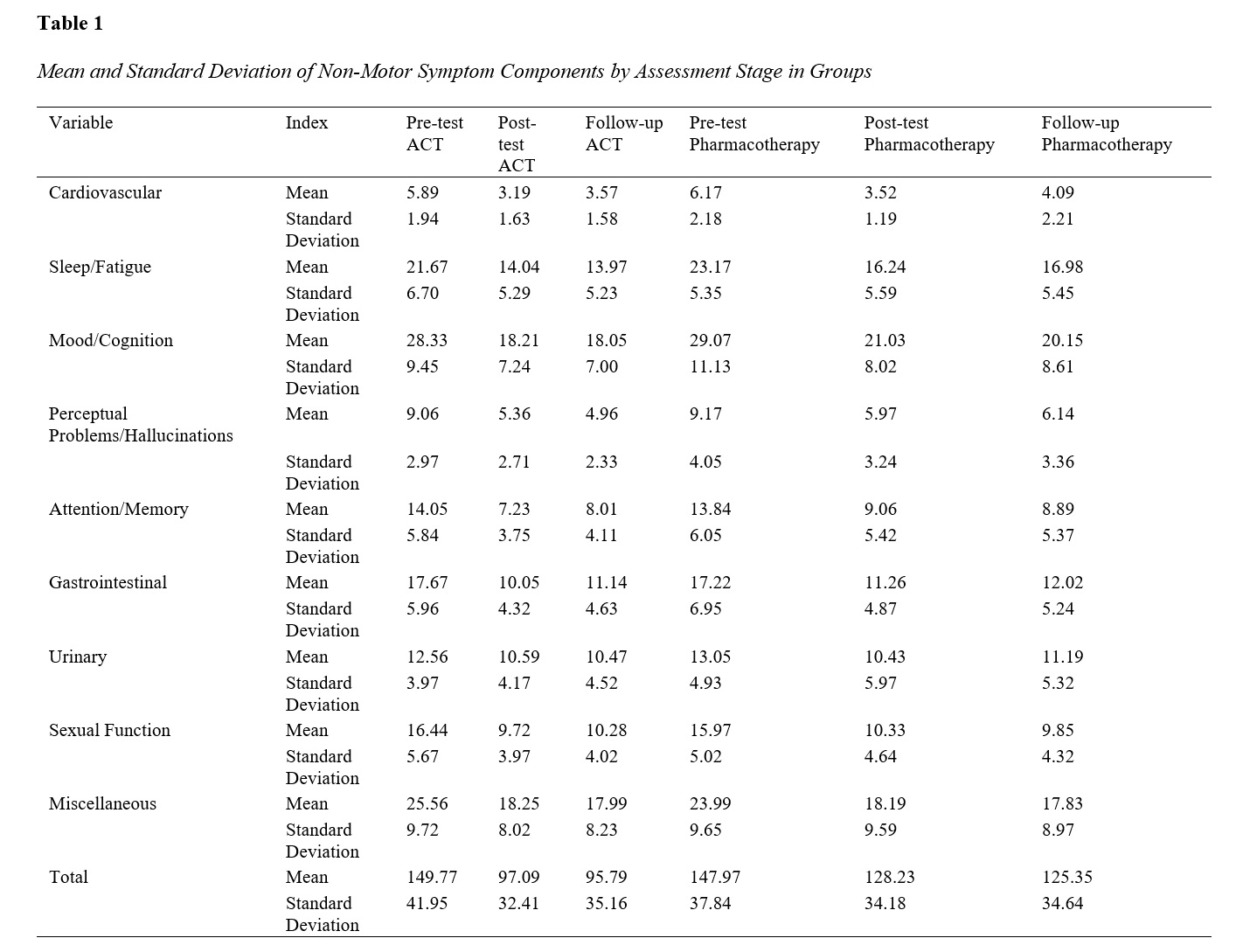Comparison of the Effectiveness of Acceptance and Commitment Group Therapy and Pharmacotherapy on Reducing Non-Motor Symptoms in Parkinson's Disease Patients
Keywords:
Parkinson's disease, pharmacotherapy, non-motor symptoms , acceptance and commitment group therapyAbstract
Objective: The present study aimed to determine the difference in effectiveness between Acceptance and Commitment Group Therapy (ACT) and pharmacotherapy on reducing non-motor symptoms in Parkinson's disease patients who visited the Imam Reza Clinic in Shiraz, Neurology Department.
Methods and Materials: In this quasi-experimental study, 36 participants were purposefully selected for two groups (each group = 18 participants). The tools used for the assessment and diagnosis of disorders by a clinical specialist included the Non-Motor Symptoms Scale (NMSS) for Parkinson's Disease.
Findings: The findings confirmed the effectiveness of ACT and pharmacotherapy on non-motor symptoms, covering components such as cardiovascular, sleep/fatigue, mood/cognition, perceptual problems/hallucinations, attention/memory, gastrointestinal, urinary, sexual function, and miscellaneous issues (P < 0.05). The results indicated that the effectiveness of ACT was greater than that of pharmacotherapy, and this difference was statistically significant (P < 0.05).
Conclusion: Therefore, it is recommended that centers associated with Parkinson's patients use ACT to improve the mentioned components and thereby enhance the well-being of this group of patients.
Downloads

Downloads
Additional Files
Published
Issue
Section
License
Copyright (c) 2024 Zahra Javidtash (Author); Naser Amini (Corresponding Author); Hossein Baghooli, Majid Barzegar, Vahid Reza Ostovan (Author)

This work is licensed under a Creative Commons Attribution-NonCommercial 4.0 International License.














